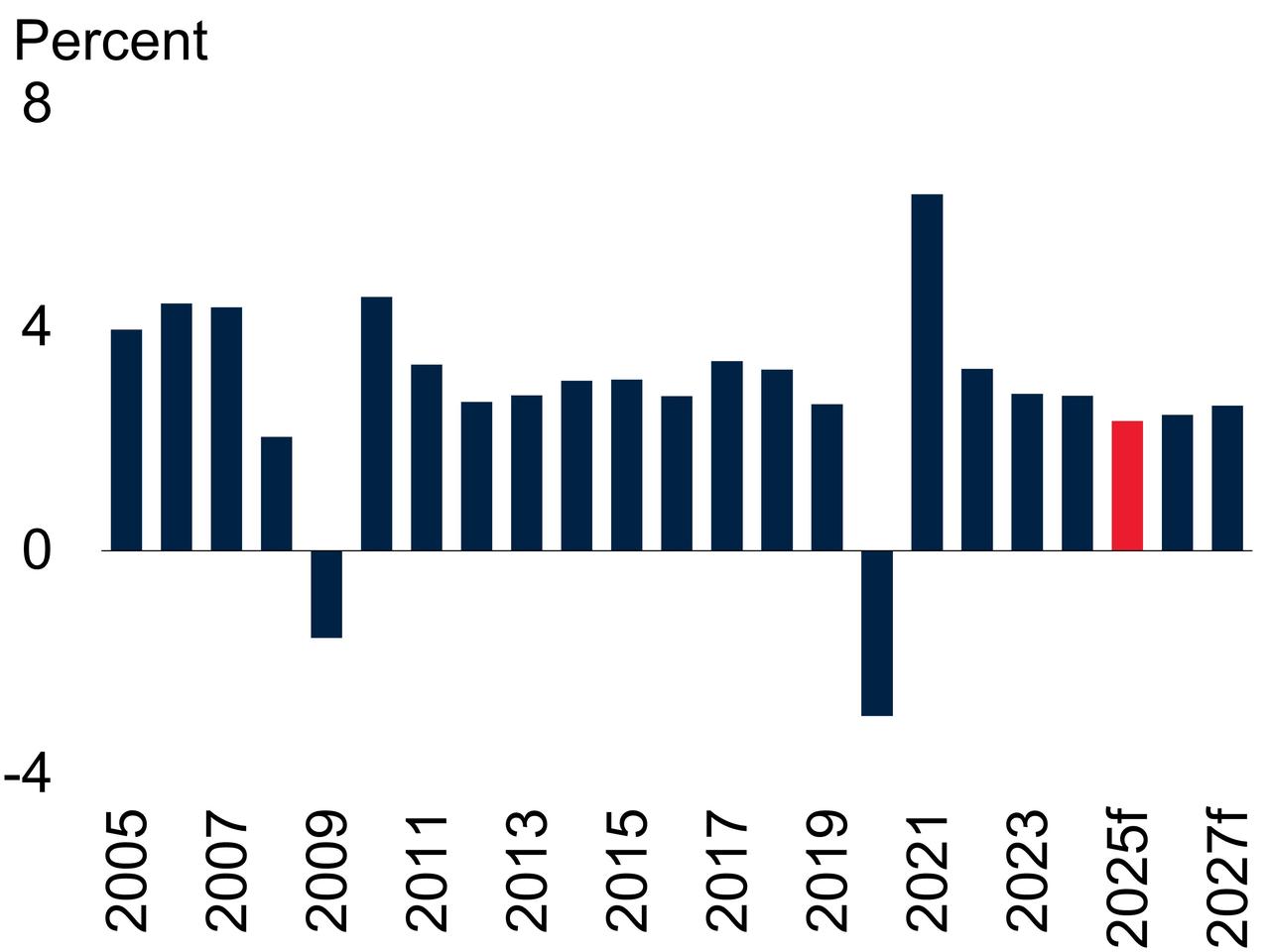
Türkiye’s Treasury and Finance Minister Mehmet Simsek welcomed the World Bank’s latest Global Economic Prospects report on Wednesday, which raised the country’s 2025 growth forecast by 0.5 percentage points to 3.1%.
In his post on X, Simsek emphasized that the revised outlook reflected growing international trust in Türkiye’s economic strategy. “With growing confidence in our economic program, expectations are improving,” he said, noting that “the World Bank has downgraded the growth forecast for nearly 70% of economies, while it has increased Türkiye’s forecast by 0.5 points.”
Simsek added, “We will continue with determination to implement the policies that strengthen the foundations of sustainable high growth.”
The report also projects Türkiye’s gross domestic product (GDP) to grow by 3.6% in 2026 and 4.2% in 2027, reinforcing a positive medium-term outlook for the country.
Türkiye’s GDP growth slowed to 2% in the first quarter of 2025, down from 3% in the previous quarter, according to official data.
The World Bank, however, painted a more pessimistic picture for the global economy. It revised its 2025 global growth projection down by 0.4 percentage points to 2.3%—the slowest pace since the 2008 financial crisis.
The report attributed the decline to a “substantial rise in trade barriers” and an increasingly unpredictable global policy environment. According to the bank, growing protectionism and trade-related uncertainty are weighing on economic activity and eroding prospects across most economies.

The United States is among the hardest-hit advanced economies, with its 2025 growth forecast slashed from 2.3% to 1.4%. The eurozone also saw a cut, with growth expected to reach just 0.7% in 2025, 0.8% in 2026, and 1% in 2027.
In contrast, the World Bank kept its estimates for China unchanged, forecasting 4.5% growth for 2025 and 4% for 2026.
Indermit Gill, the World Bank Group’s chief economist and senior vice president, said the possibility of a “soft landing” for the global economy has faded. He noted that international discord, particularly over trade, has destabilized many long-standing policy frameworks that previously supported prosperity and poverty reduction.
“The global economy today is at an inflection point,” Gill said. “The forces that once drove economic convergence and lifted billions out of poverty are now in retreat.”